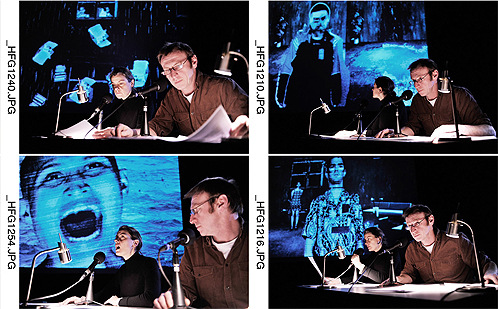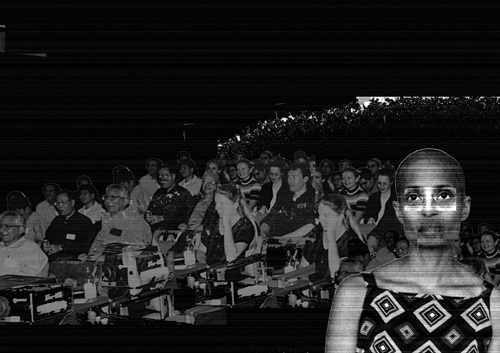Later, after the teacher bloke has folded away his books, after the class announcements concerning births, evacuations, deaths and otherwise, two of the kids get in some kind of argument concerning the question of what are the tiny particles that the whole world is actually made of.
Argument starts off small and gets bigger, whether it is molecules as the first one claim or pixels according to the other. The talk goes back and forth in the way of these things, the two of them seated on desks, all mouthy and feet up on the chairs, even as voices get more heated. Or at least it stays that way until the point where the two ontologists rise for confrontation, kick back the furniture for the more or less inevitable violence to settle all this and the kid that says it's molecules grabs the other by the hair and then they are both pulling and kicking, a blurred and panting double head-locked beast in the form of a scuffle surrounded by a turning irregular circle and the ragged onlookers wheel this way and that, experts in the art of the semi-excited bystander, until, later, near the end, the whole thing grinds and judders to a halt as the taller of the two (molecules) gets the proponent of pixels down hard on the ground where he punches him repeatedly in the face, smashing his glasses in several places and somehow also breaking something in his victims nose at which point a thick dark red trail of fluid starts to flow from it and the fight is more or less done, the argument more or less settled and the sad trickle trail of the pixels that make up the losers blood is making its way down, slipping slowly down the pixel surface of the face to the ground where the thick red fluid coagulates, its pixels making dark running pools upon the chess board pattern of the pixelated mud-scuffed flooring tiles.
*
I speak with P. at the Museum who explains that our plans will have to be framed in any case by the policies set down by the archiving department. According to these rules works on paper he says, can be shown for up to two years but then must be rested for the same period, in storage, away from the light. For some reason I like thinking about the drawings and photographs, kept in the darkness in this way, waiting until they're allowed to be back in public, remembering what eyes can do to them, enjoying the silence.



 *
*